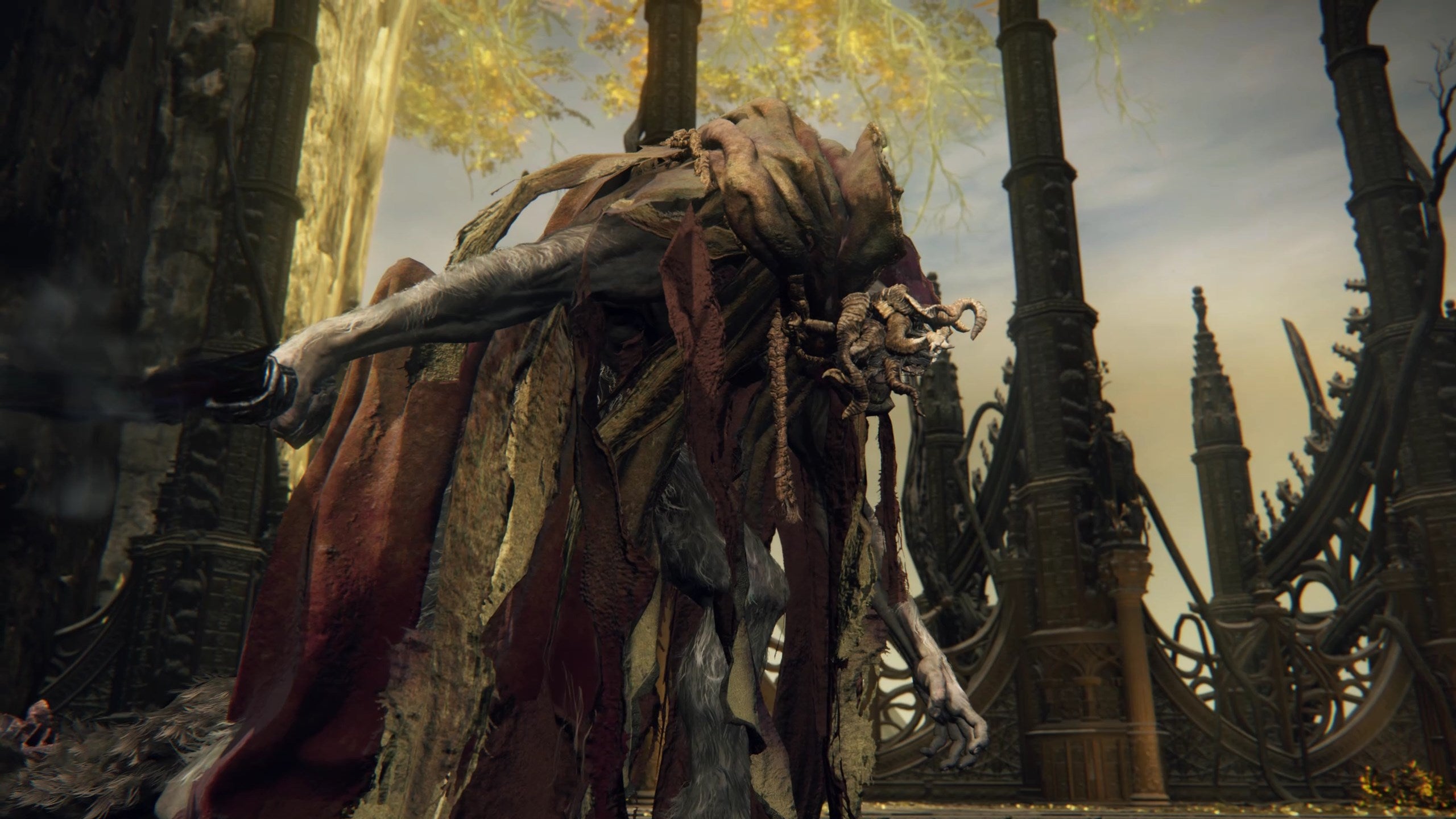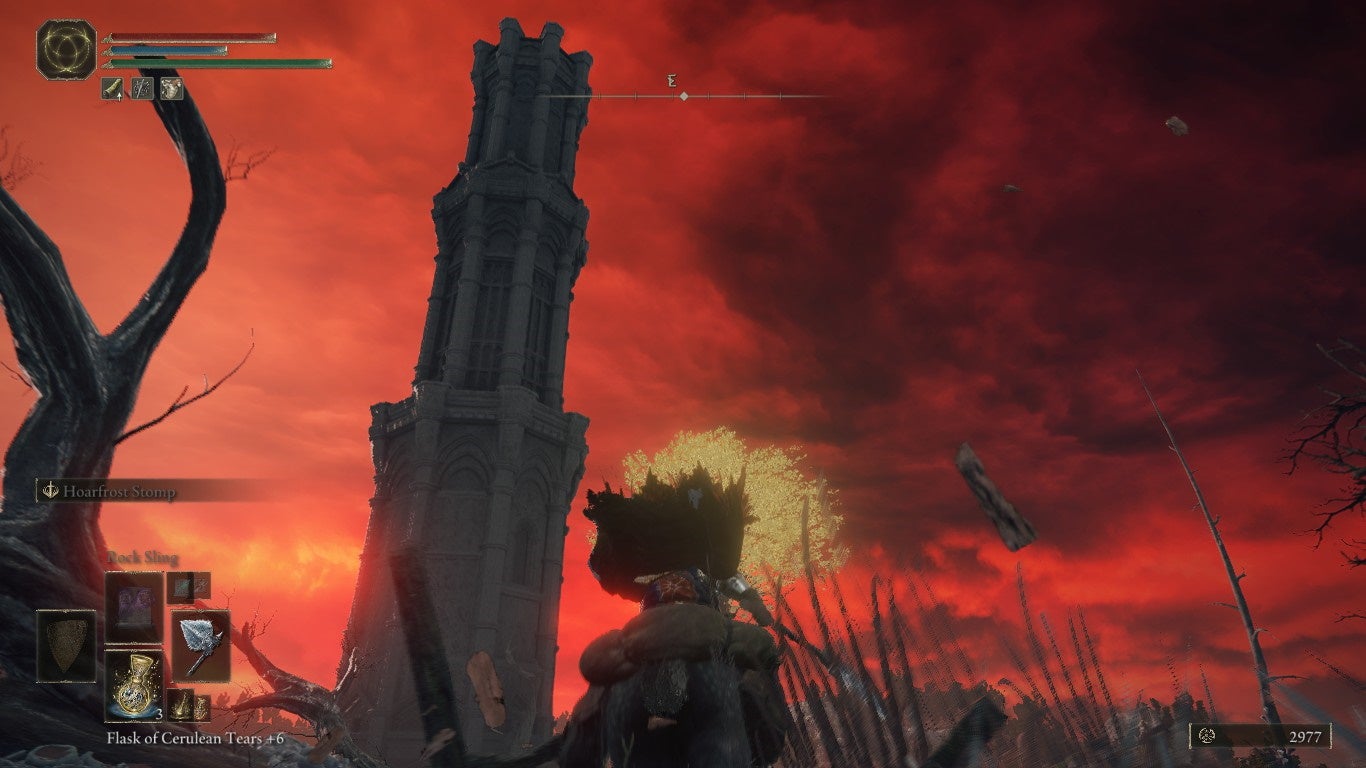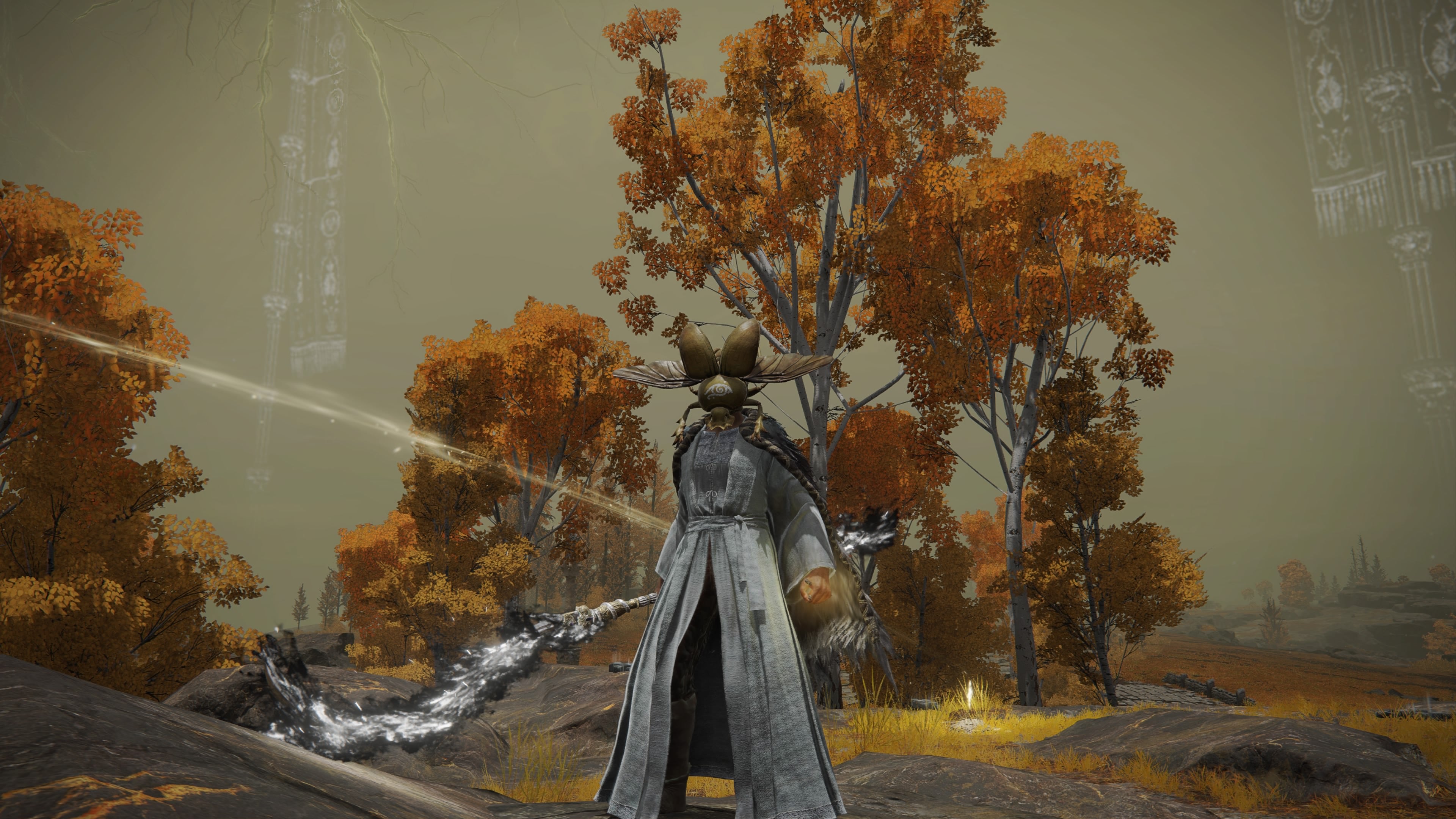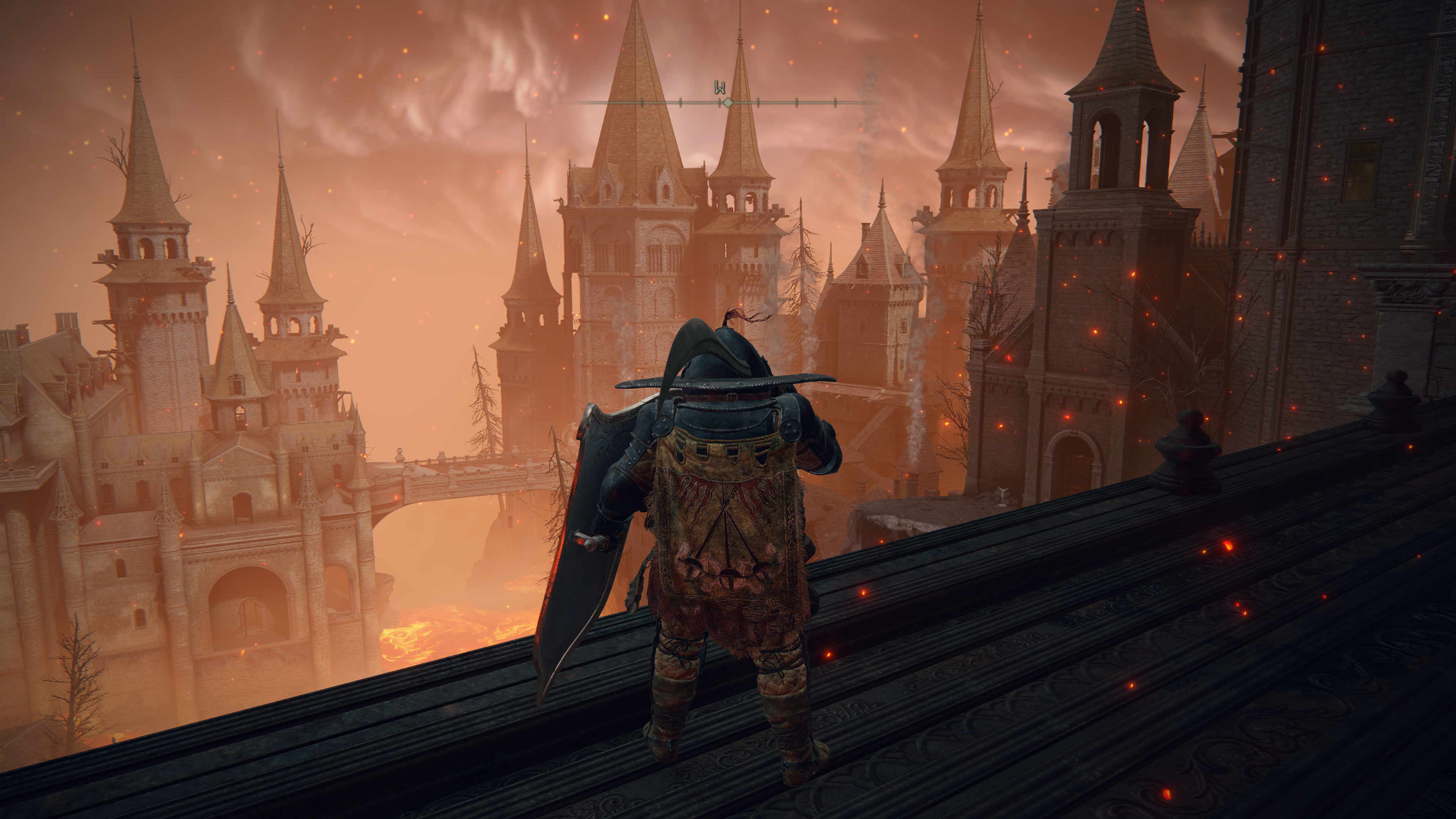Logically, I know that having the right weapon or item isn’t a cast iron guarantee of success; there’s every chance that twenty-foot tall boss will boot you into orbit before you can so much as unsheathe your sword. But FromSoftware’s titles have, game by game, turned me into a major hoarder – and Elden Ring casually dialled things up to eleven.
The rot started with the original Demon’s Souls and its very first boss, Phalanx; or, at least, the first boss that wasn’t specifically designed to insta-kill you. It was a menacing mash-up of compost heap and medieval armoury, named after the military formation it vaguely resembled.
At the time, I didn’t know it was particularly vulnerable to fire, so it wasn’t the easiest of boss battles and when the beast and disgorged its soul, I felt justified in running off the nearest merchant (the game uses souls as currency) and trading it in for the pointiest weapon I could.
It wasn’t until a few hours later, when stumbled across an armourer, that I realised I could have used the Phalanx’s soul to create a particularly powerful weapon – the Scraping Spear. Would that weapon have let me steamroller every single boss? No, but it’d have given me one heck of an edge, particularly in player versus player and, short of starting all over again, that weapon was permanently out of my reach.
Never again, I vowed, resolving to gather up every trinket, weapon and non-standard soul I could, squirreling away those I couldn’t carry. What’s that, Flesh-Searing Sword of Xanatos? I should trade you in because the Flask of Ultimate Luck is poking you in your one glowing eye? Tough, I know what your game is – I’m not facing the Mucus-Coated Knight without you.
So, by the time Elden Ring came around, I’d acquired quite a hardcore hoarding habit. Still, I reasoned, maybe this was a chance to dial things back. Elden Ring’s vast open world surely meant, if a boss proved too tough, I could wander off elsewhere, practice my skills, tackle a different area and come back later.
And, for a while, it worked. I accidentally stumbled into Caleid, Elden Ring’s own Hell, but I pushed forward, practicing my blocks and parries and.. wait for it.. actually sold some items. I’m not just talking about ditching a handful of short swords, either – tracking down a local merchant, I sold a couple of items that sounded like they could, potentially, be important. I actually (and this brings a tear to my eye) left the merchant with less items than I started out with.
Take that, From Software – you’re not going to get me on Limgrave’s Worst Hoarders now. If I die it’s going to be at the hands of some massively improbable enemy, not crushed beneath five crates of Cursed Amulets. I’m only half-kidding – tell me an item has a 1% of insta-killing an enemy but a 99% chance of making my character vomit up their pelvis and I’ll still hold on to it. You never know.
But, as is quite often the case, Twitter ruined everything. I’d made a reasonable effort to avoid spoilers and had ploughed onwards through Elden Ring’s lands, but then, a fateful Tweet caught my eye. Three words stood out.. “Rivers of Blood”. The tweet went on to remark how ridiculously powerful it was when sufficiently upgraded. Unfortunately, that wasn’t an option for me, as I’d since sold it to the merchant who dwelt in Elden Ring’s starter church.
A quick, if ill-advised, trip to the Elden Ring wiki was enough to send my whole hoarder-free house of cards tumbling down, as I picked through all the weapons I could have shoved in my pockets. I likewise discovered that some upgrade stones came in finite quantities, meaning I could well have traded away my chance of crafting an Ultimate Weapon of Morgott Murder. And thus, the hoarding began again.
It doesn’t help that a lot of action RPGs coddle the player when it comes to disposing of items. Take Elder Scrolls V: Skyrim, for example, which I’ve purchased on multiple platforms. Traipse over to Belethor’s General Goods with an improbably large armful of unique weapons and he’ll be happy to take them off your hands for a fraction of their actual value. But, and this is the concession that more than a few RPGs make, he’ll never actually sell them. Want a weapon back? Wander back to Belethor’s store, grit your teeth through his dialogue and the Blade of Brown Trousers is back in your possession.
I’ve sometimes compared Skyrim to a fantasy version of The Truman Show, because everyone has an inordinate interest in your affairs; so praising one of its more unrealistic aspects is more than a little hypocritical. Elden Ring’s approach, whereby the item is gone the moment you’ve sold it, is absolutely more realistic – but there’s no road back from Seller’s Remorse. So, faced with the gnawing suspicion that I might need one of the game’s many unique weapons later, my only “choice” has become to hang on to every last one, ignoring the weird looks when I have to stamp my storage chest shut.
So how much of this is FromSoftware’s fault and how much is my own ridiculous fault? It’s a little of both. How you allocate your stats matters, but once you reach a certain point, you can reallocate them to make the most out of a weapon. A Rivers of Blood-equipped build is certainly quite a thing and there’s at least one other build that makes you all next to unstoppable. But when your opponent has a dragon for an arm, the notion of fairness is open to debate.
Right now, I’m diving into the Demon’s Souls remake and while, due to the size of the game, my Hoard of Shame™ is going to be smaller than in Elden Ring, I still don’t plan on parting with anything just in case it’s that one weird item that will take The Tower Knight’s clean head off.
But with Elden Ring selling over 13 million copies, and FromSofware reiterating its commitment to the franchise, a sequel seems all but certain. Am I looking forward to exploring another land so rich and vast that you can discover new places even on a second or third playthrough? Absolutely. I’m just not sure my character’s pockets and spinal column will be able to take the toll.




